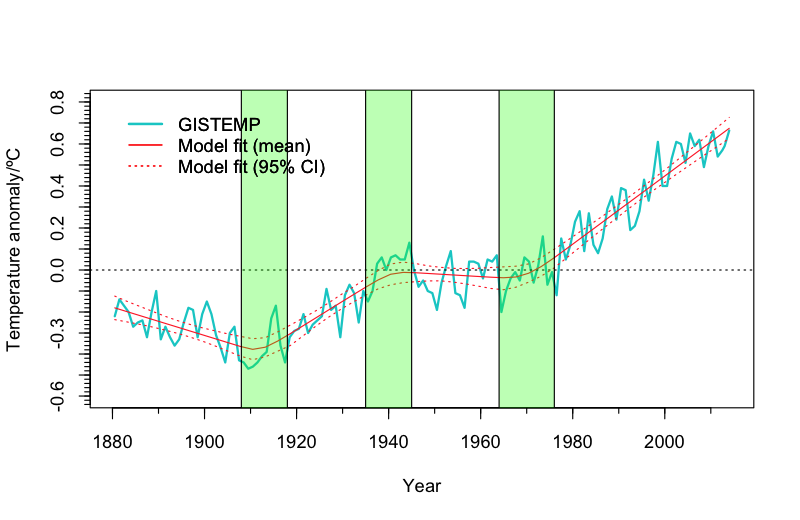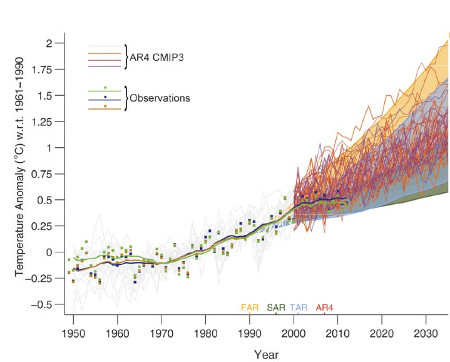Gotta love the Spectator…
spectator.co.uk/books/962643 … d-hockney/
[quote]‘Pray don’t talk to me about the weather, Mr Worthing,’ pleads Gwendolen in The Importance of Being Earnest. ‘Whenever people talk to me about the weather, I always feel quite certain that they mean something else. And that makes me quite nervous.’ Weatherland would make Gwendolen very nervous indeed. Our observations of the sky, Alexandra Harris reveals in this extended outlook, have always meant something else.
Weatherland is a literary biography of the climate. Beginning with the Fall (in the Biblical rather than the autumnal sense) and ending with Alice Oswald, Harris condenses 2,000 years of weather ‘as it is recreated in the human imagination’. It is the weather-consciousness of writers, for the most part, that propels the narrative; art takes a back seat until the 17th century, at which point the sky appears in English painting and the purpose of a cloud, as Ruskin said, is no longer to put an angel on it.
Harris presents us with a vast canvas, filled to the edges. No Norman weathercock goes unobserved; we follow the sun as it evolves from a Renaissance symbol of majesty to the chilly light of Claude Lorrain; meteorological discoveries are included throughout. The result is variable: a dry start for some is followed by mainly bright and sunny spells, thickening at times, and culminating with a patch of low-level turbulence. What holds the material together is Harris’s fluent and unfaltering prose; she could be read for style alone.
We can blame Eve for our English summers. Eden’s ambient air made clothes unnecessary but one bite of the apple, according to Paradise Lost, and God unleashed the ‘alterations in the heavens and elements’. Milton, Samuel Johnson drily noted, was super-sensitive to temperature and only wrote at certain times of the year. ‘The author that thinks himself weather-bound,’ Johnson believed, was either ‘idle or exhausted’. Only in old age did the Great Cham admit that weather mattered: ‘I am now reduced to think, and am at last content to talk, of the weather. Pride must have a fall.’
Writing has always been weather-bound. ‘English literature,’ says Harris, ‘begins in the cold.’ Around fires in the mead hall, our Anglo-Saxon ancestors heard the melancholy tale of the Wanderer, an exile on the ‘icy waves’, consumed by ‘wintercearig’, which translates as ‘the cares of winter’. If the sun ever shone over eighth-century England, it was never recorded by a poet; the purpose of storytelling was to control the chaos of outside, to master ‘all that was monstrous in mist and mere’. In the case of Beowulf, Grendel — the creature who prowls the borderlands — ‘is the weather’, born of the crags and hoarfrost.
Spring arrives with the Middle Ages; The Canterbury Tales begins in an April shower. With Shakespeare comes internal weather. When King Lear blows and cracks his cheeks, he is indistinguishable from the storm itself, and Macbeth creates his own ‘fog and filthy air’. Ahead of the scientific spirit of the 18th century, Daniel Defoe appealed for witnesses to report on the effects of the 1703 hurricane, thus initiating what must be the first experiment in Mass Observation.
Charlotte Brontë, who found, as she put it, ‘no fresh air in Jane Austen’, did not look hard enough. Austen’s plots, Harris reminds us, all hinge on weather. Jane Bennet catches cold on a damp day; Elizabeth wears a mud-splattered dress; Marianne Dashwood slips on the wet grass and twists her ankle; Catherine Morland yearns for a stormy night. It is Brontë, Harris notes, who keeps her heroines indoors. ‘There was no possibility of taking a walk today,’ begins Jane Eyre, and so Jane curls up with a copy of Bewick’s birds.
Moving on through the ages, we feel the Wordsworthian breeze, Tennysonian damp, Dickensian fog and the sodden ground of the first world war. The modernist palette is steely grey. Harris is at her best in the early 20th century, particularly on the topic of the sun-seeking D.H. Lawrence who, in Women in Love, had Gerald die, as lonely as the Wanderer, in the ‘bruisingly, frighteningly, unnaturally cold’ Tyrolean Alps.
When she arrives at the later half of the 20th century, Harris becomes as nervous as Gwendolen. Weatherland careers to its conclusion with a melting pot of summaries (The Go-Between, The Cement Garden, Atonement), a collage of artists — Hockney, Hodgkin, Anthony McCall — and a round-up of today’s nature writers. The chaos of the final pages is in tune with the age of climate change: soon there will be no English weather to speak of. In this sense, the forecast is bleak; Harris has provided an exhaustive and exuberant elegy.[/quote]





